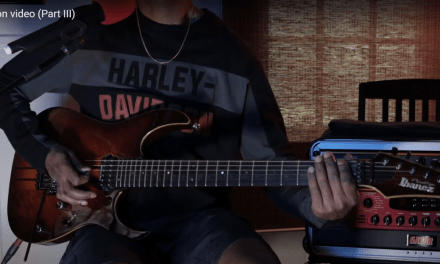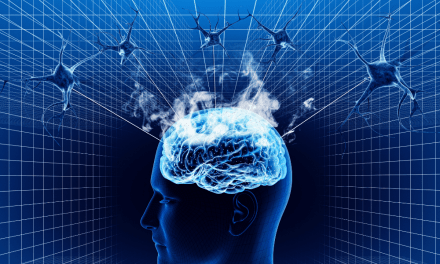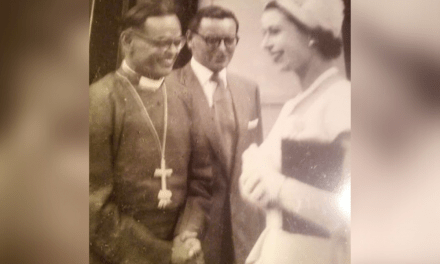Physical pain apart, we experience emotional pain, social pain, economic pain, and spiritual pain. These non-physical pains can be grouped under the gambit of psychological pain. They manifest as a physical pain and turn chronic in nature with the absence of external stimulus, whatsoever. (Mechanical, Chemical, Temperature etc.,)
The pain of grief is associated with the loss of a loved one and is considered a severe form of pain. The grief of the pandemic has left every one of us with a permanent wound and gives us pain whenever we revisit it.
Samba Sivan is an ex-Mantaravathi from a remote village whose life depicts many shades of pain. This is the mainstay of this essay. The respite comes when we go through the play of Job from the Scriptures and the suffering endured by our Lord Jesus.
On the other hand, we have a plethora of techniques to counter these pains – CBT or Relaxation techniques in the psychological realm.
Definitions of pain:
Pain is from the Latin root poena and Greek root poinē; both have direct meanings: punishment, penalty, retribution. Peine, was the first usage on “the agony suffered by Christ” recorded in the late 13 century. The antonym of pain is pleasure.
It is not out of place to glean some insights by looking at the domain of ancient knowledge. Aristotle describes how pleasure and pain can be used to educate and steer the young. This has influenced many scholars to believe that pleasure and pain are the primary and sufficient guiding forces of moral development (these are ideas based on Nicomachean Ethics).
Pathos is another Greek word, meaning suffering and experience, which appeals to feeling and emotion. Pathos is used synonymously with piety or empathy. Pathology is coined from two Greek words
‘pathos’ and ‘logia’ meaning “suffering’ and ‘study’. Pathos has other extended meanings. We say someone is in a ‘pathetic situation’.
Pathos is one of the rhetorical devices used in the literary parlay. Aristotle provided us with three ways to appeal to an audience: logos, pathos, and ethos. Also, ethos, logos, and pathos are three persuasion tools used by Shakespeare, prevalent in most of his plays/dramas. [Not to miss out Kairos – opportune moment/time.]
Britannica defines pain as a complex experience consisting of a physiological and psychological response to a noxious stimulus. Pain is a warning mechanism that protects an organism by influencing it to withdraw from harmful stimuli; it is primarily associated with injury or the threat of injury
The International Association for the Study of Pain defines pain as “an unpleasant sensory and emotional experience associated with, or resembling that associated with, actual or potential tissue damage.” This is the latest definition as of 2020 accepted by the IASP Council.
Pain Types
Physical pain, one inflicted through an injury or by any other means [external stimulus] mechanical, chemical, heat, electricity, etc., is the experience we go through mostly causing tissue damage or the threat of injury.
We experience emotional pain, social pain, economic pain and spiritual pain. These non-physical pains can be grouped under the gambit of psychological pain. These pain when not addressed, they manifest as physical pain. Psychogenic pain and psychosomatic pains have orientations towards unpleasant life experiences and stresses.
Story of Samba Sivam
Samba Sivan is an enterprising personality, whom we had come in touch with, during our outreach visit to villages. He is an ex-Mantaravathi from a remote village near the Andhra border, who would incant some mantras to any person who is bitten by a snake and they are relieved of the effects of the venom. Pathos/misfortune befell him when he had a stroke and was rendered paraplegic – both his legs are paralyzed and he is bedridden from that day on.
He was made to stay in a thatched shed in front of his own house. And his devoted wife would take care of him, feed him and assist him. His son and family members live in his house, made of concrete. Samba Sivam’s daughter in law, two grandsons were frequent visitors to his bedside. This is when we first met him in his humble abode (thatched shed). We frequently visit him on a weekly/ fortnightly basis and offer prayers and encourage him. Samba Sivam is a cheerful man, who would have a lively conversation and never complains about his setbacks and his wretched disposition. He is hopeful that one day, divine healing would take place.
Over many seasons, the thatched shed, in which he was housed became old and started to leak when it rained, then slowly fell apart. In course of time, he was moved to a small room, a temporary structure which was put up on the roadside, a stone’s throw from the house. This room was an incomplete structure in every sense – it had no flooring, electricity, proper ventilation, or even a door. This was progressive alienation meted out to Samba Sivam. To add to the misery a few days back, when we went to visit him; we saw a cow tied next to his bed which was blocking the way towards the inside of the small room.
We thought we had lost the old friend who kept us cheerful company and we were not informed about his passage to the other world. We wished that finally he would be relieved of the pain he endured over the years and his helplessness had ended. We decided to take a look inside the shed and to our surprise, we could see Samba Sivam on his cot. Our hearts leapt with joy when he responded to our call and the feeling of sadness just melted away. We could see his face in the light of our cell phones, as my friend’s face which was glum now gleamed back with a smile knowing that his friends were back to see him after a long time. We felt sad when we saw the walker which we had brought to rehabilitate him was lying on the other side of the room. We could only hope that one day he would be able to step out of this sick bed and walk around. Whilst the family have another view altogether! We could hardly pray, choking with anguish. We somehow managed to say a few words of encouragement and move on.
As we were leaving, we were filled with remorse upon observing that the cow was infected with pods of lesions all over its skin and the haplessness of our friend. The parable of ‘The rich man and Lazarus’ spoken by Jesus came to our minds. ‘Moreover, the dogs came and licked his sores.’ was the resonating note. We spoke to the son and daughter-in-law; that, it is unfair to house your elderly parent in an incomplete shed and left to fend for himself, along with an infected animal. This is nothing short of cruelty against humanity. We further advised them to shift the cow outside and provide light in his shed.

SHADES OF PAIN
As pain has multiple shades it is also interesting to know that the experience is subjective. Pain scales are used to assess pain. And it could vary with the perspective of each person.
Shakespeare pens in the ’Comedy of Errors’:
A wretched soul, bruised with adversity,
We bid be quiet when we hear it cry;
But were we burdened with like weight of pain,
As much or more would we ourselves complain.
Intensity of pain is felt the most when it comes to oneself.
Just as the seven hues of a rainbow, I try to bring out seven shades of Pain.
Pain of Grief:
Losing a loved one is the most intense form of grief, we often hear ‘losing a loved one changes you for the rest of your life’. Mourning the loss of a loved one has been observed ceremonially, in many communities, to bring them back to terms with reality. This enables them to move out from personal bereavement. Again, every person’s bereavement process is unique, and their response to grief are varied.
The Pandemic has left with everyone a lingering scent of grief and experience still, a few are struggling to cope.
Though death is an inevitable event in one’s life cycle, many dread and fear it. In our case study of Samba Sivam, the very thought that we could have lost him, engulfed in us a grief / sad feeling.
Pain of Perplexity:
When ill health or misfortune befalls us; like a thunderbolt from the blue, we are at first bewildered by the suddenness of the events that unfurl. Then we are perplexed why this has happened. Who is behind this? A big lingering question raises ‘why-me?’. We come up with many logical reasoning and theories ourselves. The perplexity is intensified when other suggestive inputs, that we get from our friends dear and near. It is agonizing to recon or draw any logical conclusion. This is the period of unclarity, which causes much pain it is next in intensity to grief. We reach a certain degree of clarity once the ripple settles in troubled waters. I am sure Samba Sivam would have gone through perplexity when he was shifted from a shed to a makeshift room.
Pain of Reproach:
When we are in a disadvantageous position, reproach is pickeered at us, by the dear and near. All unsavoury comments passed break us down and our self-esteem is attacked/ sabotaged. Some call out names to indicate our disadvantage. The guilt of reproach lingers within when one faces failures. We accuse one-self of wrong choices made and decisions taken. Others may pass critical judgment and recount on the wrong steps taken and so on and so forth. They look down at the helpless condition in which one is grounded. Such is the case with Samba Sivam, they look at him as a sack of bones, a liability, non-earning entity- occupying space and expending resources. “They hardly give me a cup of milk tome – a sick-man; even though we have few milch cows in our house” is the complaint we hear from him. The position of the head of the family is dislodged and the son now, calls the shots. This may sound familiar and we can relate it to happening in our own circles. Alas! what a painful reproach a man is called to bear; heights of wickedness?
Pain of Shattered Vision:
When the adversity overtakes us, be it serious illness, financial hardship, broken relationship, unemployment, et al., our dream crumbles before us, as shattered glass. All the plans and dream go haywire. May be the loss of a breadwinner in a family would leave the whole family clouded with uncertainties looming over them, with no thread of hope to cling on. Same is true when an elderly parents lose their son/ daughter on whom they would have laid their hope, dreaming their child would be supportive in their old age. The worst part is when the parents are ditched / sent out of the house into an old-age home or a senior living.
These are situations, which turn a systematic person / visionary leader totally blinded now incapable of re formulating new visons / set fresh goals. He is now switched onto a survival mode looking out for ‘one day at a time’ stance; his horizon is shortened. Pain is very depressing and often the victims brood over the situation/ turn of events.
Pain of Theological Crisis:
This is the pain experienced by a person who lives an upright life, dutifully following all norms the religion or sacred books instruct him to do; go through an adversity. The first question raised is ‘why the righteous suffer and the wicked flourish?’ If God is just, why does he allow adversity to knocks on at the righteous person. Why is the delay in rendering the justice when the wicked is left scouts off – unpunished? How would the wicked fear God, if condemnation does not befall as quick as adversity? These leave the believer / devotee / upright person is confused on the very attributes of GOD – Just, Good, Powerful, all-knowing, omni – present etc.,
The best example to quote is the Job from Bible where his big question was “Why would God do this to me when I’m walking in obedience, loving Him, doing His will, and keeping myself pure and morally blameless?” The play concludes with a new revelation: “I have heard of You by the hearing of the ear, but now my eye sees You. Therefore, I abhor myself, and repent in dust and ashes” (Job 42:5-6). Pastoral Care Giver is posed with these questions many a times…. we invariably avoid or offer a prayer support and hope for God’s revelation?
Pain of Isolation:
The Pain of Isolation is the cruellest form of social pain. During the pandemic when patients were Quarantined, they went through this agony of isolation. Totally cut off from the mainstream, many could not accommodate the new order of things. The pain was intensified with the complexity of the fear and dread associated with the news of deaths pouring in. The pain of isolation is experienced by most of the elderly in one form or the other. It is multiplied when their mobility is restricted and dependent on someone else. The pain of isolation suffered by Samba Sivam is the frequent visits of his Grandchildren is now reduced and his wife comes just to feed him at her convenient time. He has no means to call them and his shout cannot be heard by his family members.
Pain of Waiting:
The last hue in the ‘pain rainbow’ is the pain of waiting. A physically challenged lady a daily-wager – Parvathi, met with an RTA, her hip bone was fractured and a total hip replacement was suggested at Government Hospital. She was admitted and was eligible to avail of the Amma insurance – the free medical insurance for economically backward folks. To her ill luck, the hospital had no stocks and could not get one because it was the month of March (account-closing month) and doctors have to wait to place new orders only when the new tender is approved.
The doctors promised that they could check with other GH near district headquarters and see if they can get the ‘metal implants’ of the right size, for poor Parvathi. She had to wait for 45 days enduring the pain of the fractured limb and laying in bed and only her elderly mother to assist her and be with her in the ordeal. As pastoral caregivers, we could only stand by and pray that God should move in the hearts of authorities to have piety on this Parvathi. Finally, the wait is over operation was done. She would be discharged in a week’s time, which was what we all were hopeful about. There was continuous discharge in the operation site and infection was the cause. She was taken twice to the theatre and the wound was reopened, unhealthy tissue was scrapped off and was given IV antibiotics and sent home. The pain never subsided and she suffered consciously. Since the discharge did not stop and there were boils on the sutured site, we shifted her to CMC&H. Thanks to the compassionate ortho surgeons, who finally managed to extract the metal implant this month of August and was admitted for nearly a month and was given high-grade antibiotics to counter the infection (infection deep to the bones). The ordeal is not over and the prayer is organism E-coli should be out of her system. “One that cannot be cured, has to be endured” is an old idiom; the wait is on, we wait for the healing (review after 3 months), pray and hope she returns to her normal routine life, soon.
RESPITE / RECOVERY
These Psychological pains have to be addressed and attended to. Few have the ability to bounce back and most of them get stuck mid-way while others do not realize that they need help. And then, there is the group that is too proud to get help.
The respite comes with all hope and power from the scripture “he binds the brokenhearted and sets the captive free”. If we only believe we can see wonderful changes (call it miracle).
On the other hand, we have we have a plethora of techniques to counter these pains, CBT, Relaxation techniques on the phycological realm.
The Concluding note “you do not have to endure theis pain, we have cures.”
PAUL SATHIANATHAN PREM SUNDAR | Pastoral care-giver | 21.10.2022

https://digitalcommons.trinity.edu/cgi/viewcontent.cgi?article=1129&context=educ_understandings
https://www.britannica.com/science/pain
https://www.ncbi.nlm.nih.gov/pmc/articles/PMC7680716/
https://holteninstitute.co.uk/wp-content/uploads/2015/10/033.jpg
https://cdn2.slidemodel.com/wp-content/uploads/20310-01-pain-scale-powerpoint-template-16×9-1.jpg






